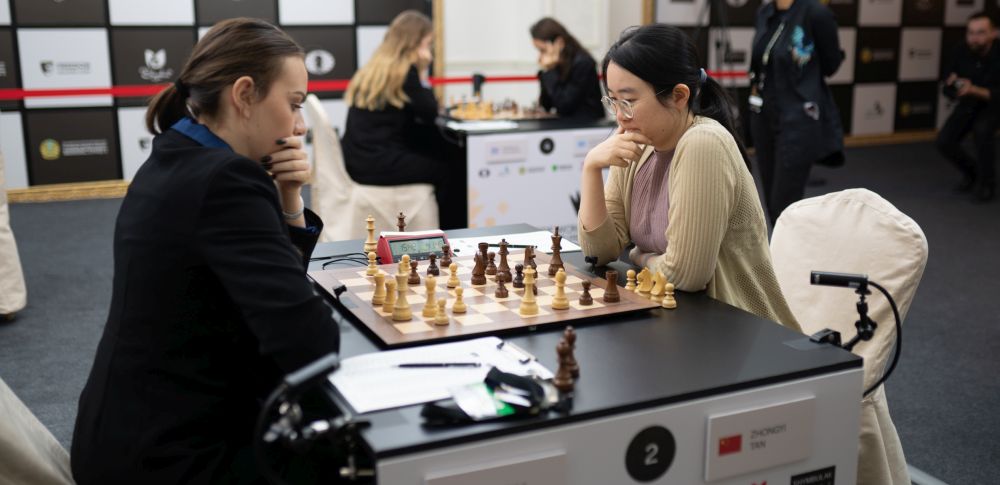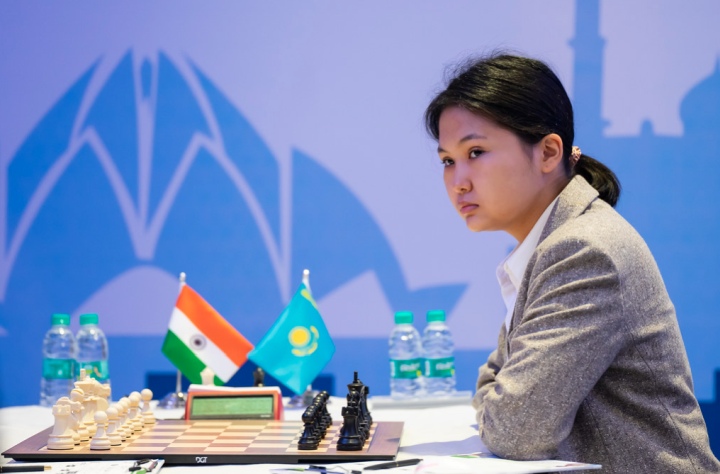
Bibisara Assaubayeva claims victory over local star Vaishali Rameshbabu, in the first decisive game played in New Delhi. The remaining three games ended in a draw
The warm weather of New Delhi at 32 degrees Celsius could not deter the players from their game, as they battled it out in the second round of the Women's Grand Prix. Amidst the blazing sun, the playing hall provided much-needed relief with its cool and tranquil atmosphere. While three games ended with a draw (two of them after around an hour of play) one ended in a victory.
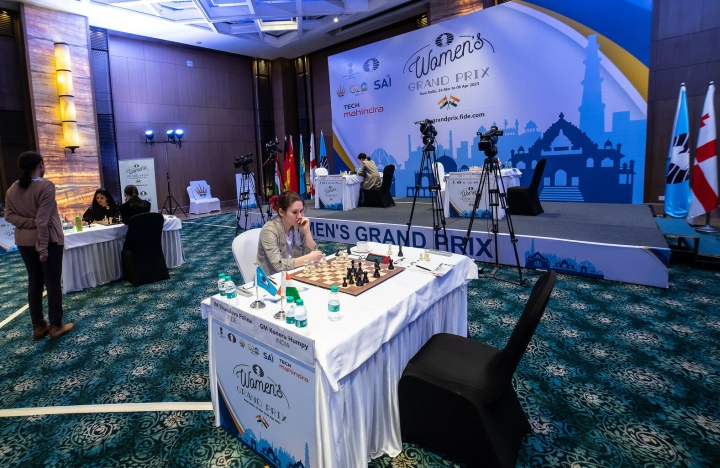
Vaishali Rameshbabu – Bibisara Assaubayeva: First victory in the tournament
This was the first game played in the tournament to end with a decisive result. Following a rest day in Round One, Bibisara Assaubayeva claimed a victory in her first game in New Delhi.
After Vaishali's 1.e4 с5 2.Nf3 g6 Vaishali (not Assaubayeva) opted for the Alapin variation of the Sicilian Defence with 3.c3. After several standard moves, the Indian IM had to make a decision, shaping up the pawn structure.
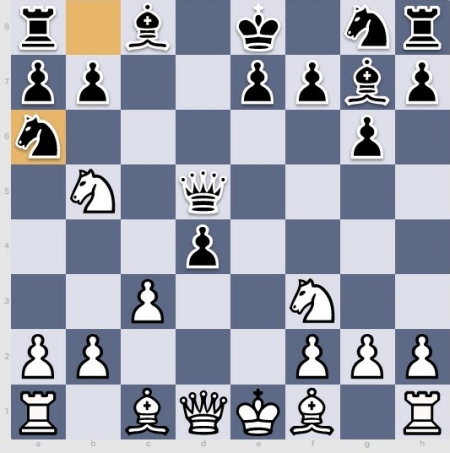
She opted for 8.cxd4 instead of 8.Nbxd4 – creating an isolated pawn in her camp but hoping for some dynamic play. However, it did not work out for Vaishali. After a couple of inaccuracies on her part, Black gradually traded the majority of minor pieces and put serious pressure on the isolated d4-pawn.
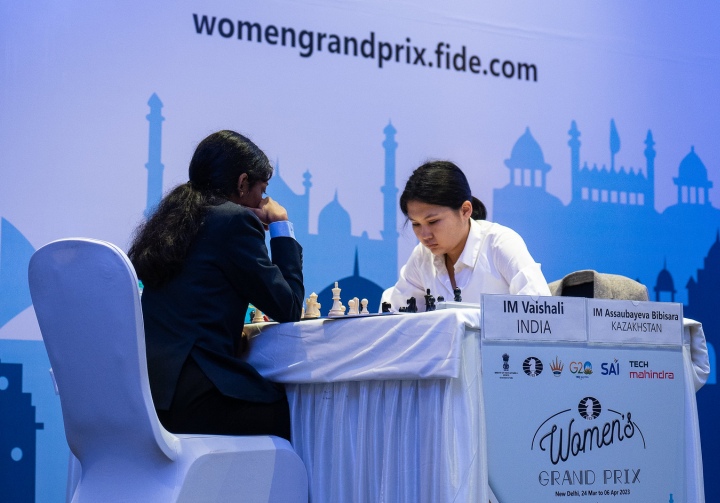
By this point, Vaishali was getting into more dangerous time trouble. For a while, however, she managed to find solid moves to keep her in play, although in an inferior position. However, it is difficult to keep finding good moves when your time is measured in seconds and not even minutes. Also, playing against the two-time Women's World Champion in Blitz games doesn't help.
In the course of the rest of the game, given her severe time trouble, Vaishali managed to trade her isolated pawn to Black's e7-pawn and simplified the position but ended up significantly worse.
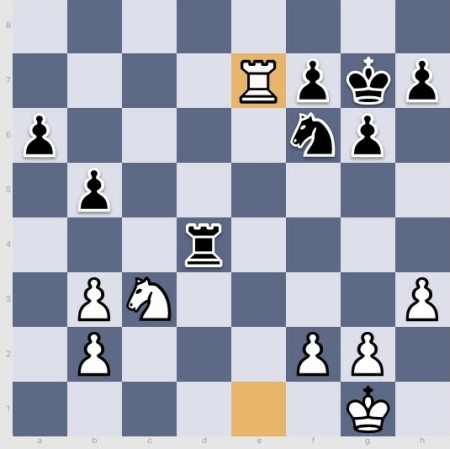
After 30…Rb4 31.Ra7 Rxb3 32.Rxa6 Rxb2 33.Rb6 b4 Black emerged with an advanced and well-protected runner on the b-file.
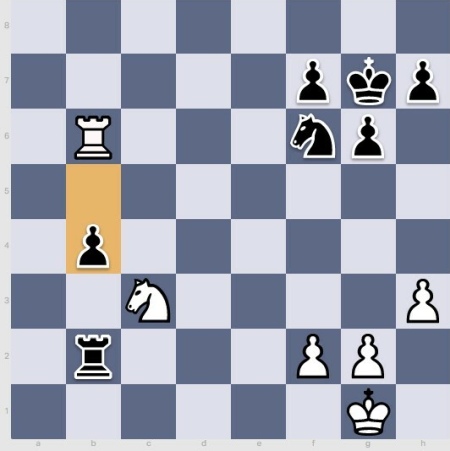
Here Vaishali made her final and – as it turned out, deadly – mistake. Instead of placing her knight on a4, attacking the rook and controlling the b2 square, she put her knight on b5 after directly in the line of her rook on b6. After that, she was completely lost.
Assaubayeva then brought in her knight to protect and then advance the b-pawn, and she confidently carried on giving her opponent no quarter. After four hours of play – most of which the Indian player spent in desperate time trouble – Bibisara Assaubayeva became the first player to win in New Delhi. Assaubayeva now has one point, as does Vaishali.
Aleksandra Goryachkina – Nana Dzagnidze: A quick draw
After just an hour of play, in a lively position that emerged from so-called Anti-Meran system, the players decided to go for a repetition and call it a day. The game lasted just 20 moves, with 15 of them being the reproduction of an earlier game Goryachkina – Dronavalli (2021), which also ended in a draw. Black deviated on move 15, but it did not change the evaluation of the position as roughly equal.
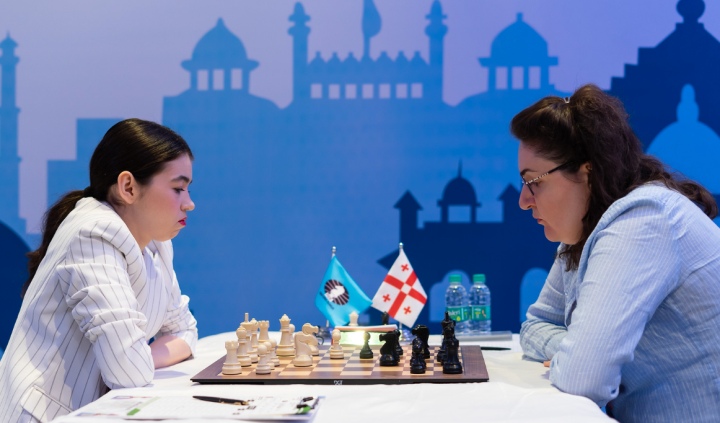
Since it's still early days in New Delhi and given that the opponents have one more chance in the fourth tournament, the two decided to take it slower today. Both Goryachkina and Dzagnidze are now on one out of two.
Harika Dronavalli – Zhu Jiner: The long way to a draw
This was the last game to finish in New Delhi, following four and a half hours of play.
Surprisingly, this is the first game the two have met over the board, despite both being among the top women's chess. The reason for this is that they belong to different generations (Harika was born in 1991 and Zhu in 2002), so they mostly played in different age categories in junior and youth events.
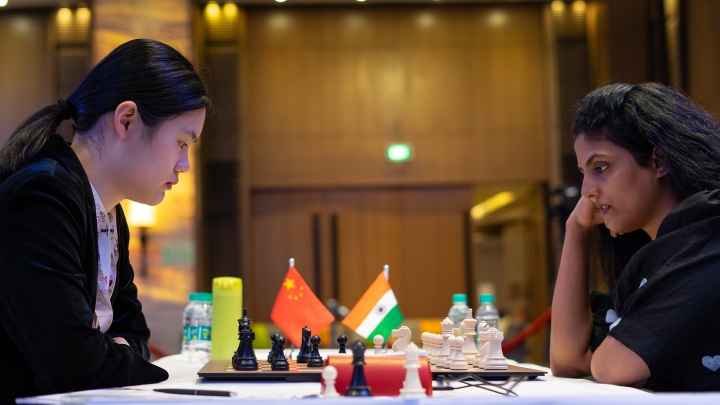
Harika opened with her standard move – 1.Nf3 and after 1…d5 2.c4 e6 3.cd5 ed5, the two went for a popular line in the exchange variation of the Queen's Gambit Declined that has been tested at the highest level many times. Harika went for a standard minority attack on the queenside and, after exchanges in the center, the two reached the following position:
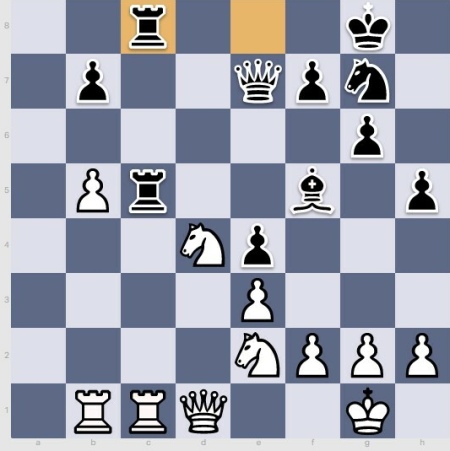
White is slightly better but doesn't pose any serious threats. After Harika straightforwardly traded all the rooks along the c-file, the game transpired into a knight endgame where Black had a remote b-passer. It seemed that only Zhu had a chance to play for a win but with precise play, White is fine. Harika did just that, and the game ended in a draw. Both have one point after two rounds.
Polina Shuvalova – Humpy Koneru: A simple draw
It was the second relatively quick draw of the day. After 19 moves and an hour and a half of play, the two split a point. Humpy Konery played the Queen's Gambit Accepted which was a surprise as she had employed this opening on just a handful of occasions before. Shuvalova opted for a trendy 7.b3 line that has become very popular lately.
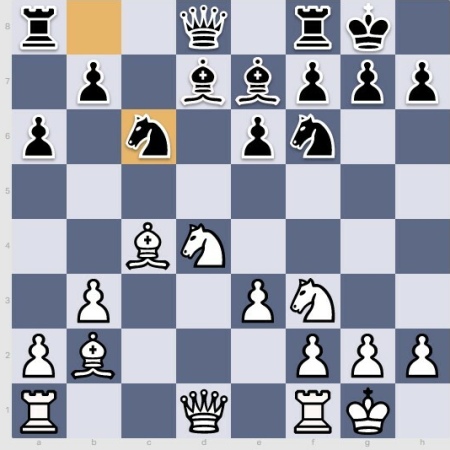
Here White has a minimal advantage, but Shuvalova dropped even this slight edge after taking the black night on c6, enabling her opponent to activate the white-squared bishop on a8-h1 diagonal.
After 12.Nc6 Bc6 13. Ne5 Bd5 – Black got the bishop to a better square and offered an exchange for White's strong c4-bishop. Shuvalova refused and played 14.Bd3. Black had no real problems in this position and was holding her ground confidently. After 14…Bd6 they two followed a three-fold repetition. With two draws in the first two rounds, both players now have a point each.
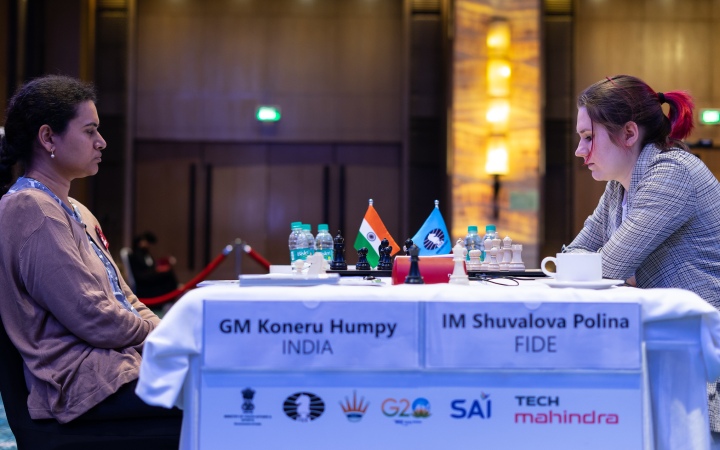
The third round of the third leg of the Women’s Grand Prix will take place on Tuesday, 28th March, at 3 PM local time.
Round 3 parings:
Humpy Koneru - Kateryna Lagno
Zhu Jiner - Polina Shuvalova
Nana Dzagnidze - Harika Dronavalli
Bibisara Assaubayeva - Nino Batsiashvili
Aleksandra Goryachkina and Vaishali Rameshbabu are free.
Text: Milan Dinic
Photo: Ismael Nieto
About the Women’s Grand Prix
The FIDE Women’s Grand Prix consists of four tournaments played between September 2022 and May 2023 and includes 16 women players who take part in three of the four tournaments. The two players who score the greatest number of cumulative points in the series shall qualify for the FIDE Women Candidates Tournament 2023-24.
The players participating in the Women’s Grand Prix have been selected based on their performance in key FIDE events and their ELO. Also, each of the four local tournament organisers has a right to nominate a player of their choice.
The time control for the tournament is 90 minutes for the first 40 moves, followed by 30 minutes for the rest of the game with an increment of 30 seconds per move starting from move one.
The total prize fund for each one of the four events is €80,000, with another €80,000 being distributed among the top eight players in the overall standings for the Grand Prix series.
General information about the venue and the dates
The third leg of the Women’s Grand Prix will take place in New Delhi’s Leela Ambience Convention Hotel. The five-star hotel is designed to cater to business events and large meetings and should make an ideal place for a tournament of this level.
The rounds will be played each day from 3 PM local time (9.30 GMT).




